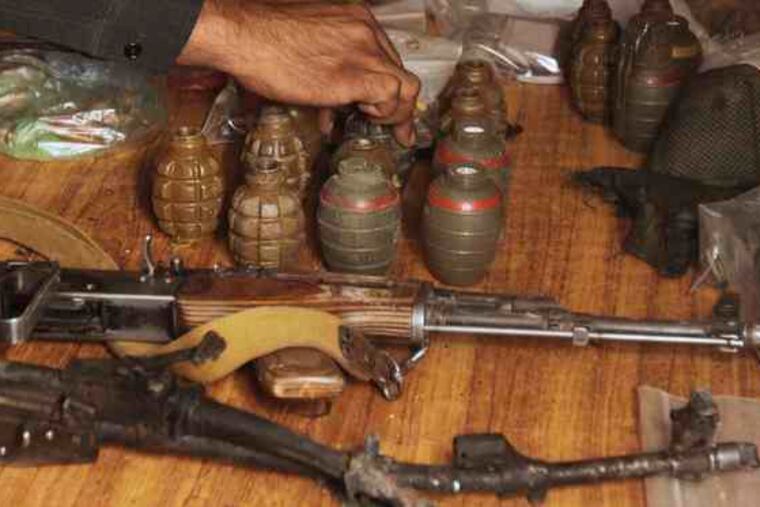Police: Taliban behind attack
LAHORE, Pakistan - Militants that attacked a minority sect, killing 93 people in the country's east, belonged to the Pakistani Taliban and were trained in a lawless border region where the United States wants Islamabad to mount an army operation, police said Saturday.

LAHORE, Pakistan - Militants that attacked a minority sect, killing 93 people in the country's east, belonged to the Pakistani Taliban and were trained in a lawless border region where the United States wants Islamabad to mount an army operation, police said Saturday.
The revelation could help the United States convince Pakistan that rooting out the various extremist groups in North Waziristan is in Islamabad's own interest. Up to now, Pakistan has resisted, in part, it says, because its army is stretched thin in operations elsewhere.
Suspicion that the man accused of a failed bombing attempt in New York's Times Square this month may have received aid from the Pakistani Taliban has added to U.S. urgency about clearing North Waziristan.
Local TV channels have reported that the Pakistani Taliban, or an affiliate, claimed responsibility for Friday's attacks in Pakistan's second-largest city.
Senior police officer Akram Naeem in Lahore said the interrogation of one of the arrested suspects revealed that the gunmen were involved with the Pakistani Taliban. The 17-year-old suspect told police that the attackers had trained in the North Waziristan tribal region.
"Our initial investigation has found that they all belong to Tehrik-e-Taliban Pakistan," or Pakistani Taliban movement, Naeem said. He said the suspect, "Abdullah alias Mohammad, was given terrorism training in Miran Shah" - the main city in North Waziristan.
North Waziristan has long been filled with militants focused on battling U.S. and NATO forces across the border in Afghanistan. The Pakistani Taliban began arriving after army operations against them in other regions.
Before the Pakistani Taliban began operating in North Waziristan, Islamabad was believed to want to avoid taking on the area because the militant networks there were not threatening targets inside the country. Critics also suspect Pakistan wants to maintain good relations with some of those Afghan-focused militant networks so that it will have allies in Afghanistan once the United States leaves the region.
Naeem would not rule out the possibility that militant groups based in Punjab province played a role in the Lahore attacks, but he would not mention any specific groups. The Pakistani Taliban has local affiliates and functions as a coalition or network of militant organizations.
Friday's attacks targeted the Ahmadi sect, a minority reviled by mainstream Muslims.
Two teams of gunmen, including some in suicide vests, stormed two mosques and sprayed bullets at worshipers. At least two of the seven attackers were captured, while some died in the standoff or by detonating their explosives.
Ahmadi leaders on Saturday demanded better government protection as they buried many of the victims. Waseem Sayed, a U.S.-based Ahmadi spokesman, said it was the worst attack in the sect's 121-year history.